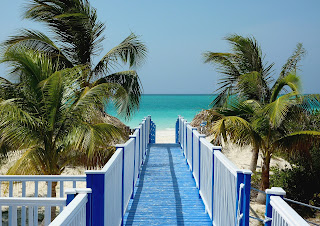The Caribbean region, with its picturesque beaches and vibrant culture, often evokes images of paradise. However, behind this idyllic façade, many countries in the Caribbean face significant challenges in their quest to attain first world status.
Despite abundant natural resources, a strong tourism industry, and a rich cultural heritage, factors such as historical legacies, economic vulnerabilities, governance issues, and limited infrastructure have impeded progress.
In this article, we delve into the underlying reasons why countries in the Caribbean have been slow to achieve first world status and explore potential avenues for future development.
1. Historical Legacies
Centuries of colonization have left lasting impacts on the Caribbean. The exploitative practices of colonial powers disrupted local economies, suppressed indigenous industries, and established systems of social inequality. The legacy of slavery and its aftermath, including racial tensions and cultural divisions, continues to shape societal dynamics in the region. Overcoming these historical legacies requires concerted efforts to address systemic inequalities and promote inclusive development.
2. Economic Vulnerabilities
Many Caribbean nations heavily rely on a narrow range of industries, such as tourism, agriculture, and natural resource extraction. This overreliance makes them susceptible to external shocks, including economic downturns, natural disasters, and fluctuations in global commodity prices. Diversifying economies and promoting sectors such as technology, renewable energy, and services can help reduce vulnerability and stimulate sustainable growth.
3. Governance Issues
Challenges in governance, including corruption, weak institutions, and inconsistent policies, hinder progress in the Caribbean. Transparency and accountability are crucial for attracting foreign investment, fostering economic growth, and ensuring the effective utilization of resources. Strengthening governance systems, promoting ethical leadership, and engaging citizens in decision-making processes are essential for achieving sustainable development goals.
4. Limited Infrastructure
Inadequate infrastructure, including transportation networks, healthcare facilities, and educational institutions, constrains development efforts in the Caribbean. Remote geographical locations, fragmented island systems, and limited financial resources pose significant obstacles to infrastructure development.
Investments in infrastructure, both physical and digital, can enhance connectivity, improve access to basic services, and stimulate economic activities across the region.
5. Brain Drain and Human Capital Development
The Caribbean faces the challenge of brain drain, where skilled professionals and educated individuals seek opportunities abroad due to limited prospects at home. This exodus of talent exacerbates the scarcity of human capital and slows down progress in various sectors.
Efforts to retain and attract skilled individuals, coupled with investment in quality education and vocational training, are vital for building a knowledge-based economy and driving innovation.
6. Climate Change and Environmental Vulnerability
The Caribbean is highly susceptible to the impacts of climate change, including rising sea levels, extreme weather events, and ecosystem degradation. Small island nations are particularly vulnerable, as they face limited land resources and are heavily reliant on coastal areas for tourism and livelihoods.
Investing in climate adaptation and mitigation strategies, promoting sustainable practices, and advocating for global action on climate change are critical for the long-term viability and resilience of the region.
Conclusion
Achieving first world status requires a comprehensive understanding of the complex challenges faced by Caribbean countries. By addressing historical legacies, diversifying economies, improving governance, investing in infrastructure, nurturing human capital, and prioritizing climate resilience, the region can lay the foundation for sustainable development and overcome the barriers to progress.
Collaboration between governments, international organizations, civil society, and the private sector is essential for implementing inclusive and impactful strategies. With concerted efforts, the Caribbean can navigate its path towards first world status, harnessing its rich potential and securing a prosperous future for its people.




.jpg)


No comments:
Post a Comment